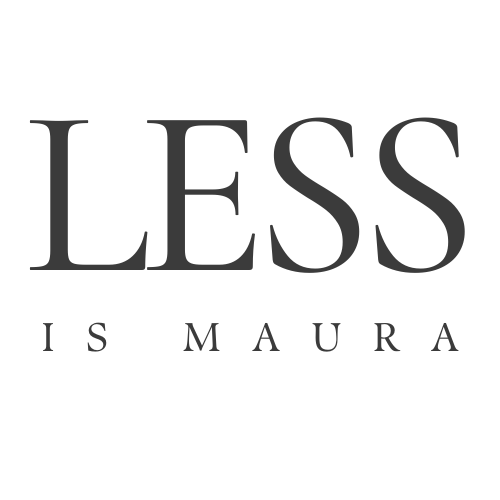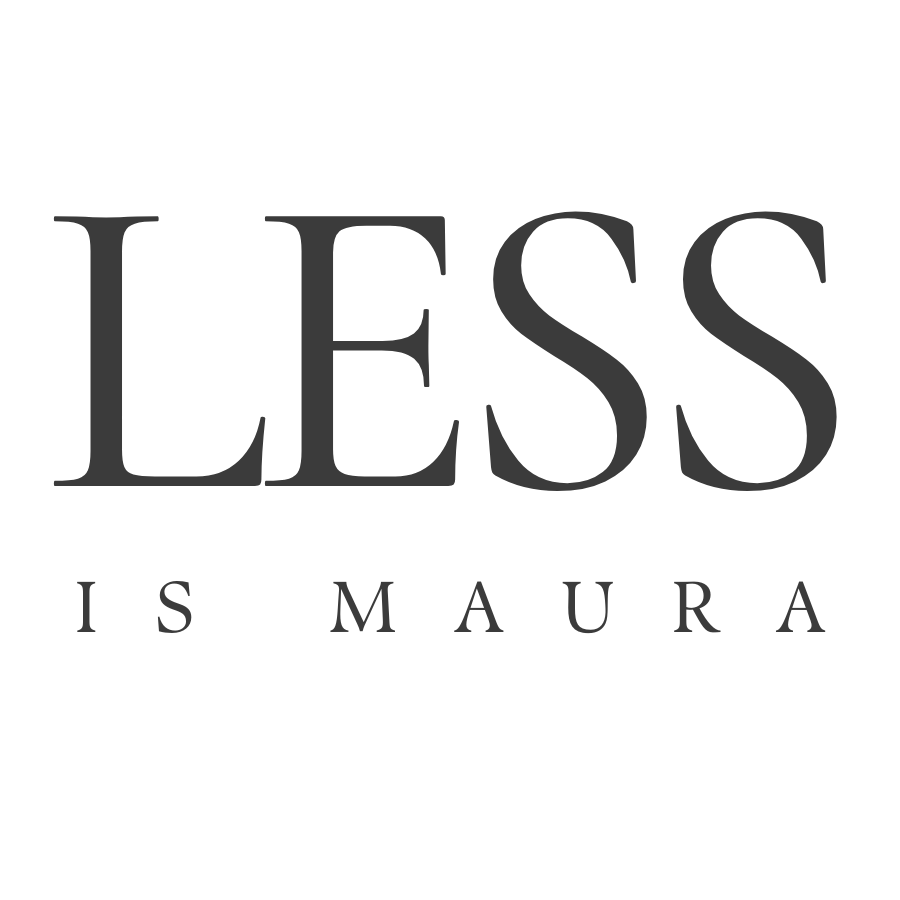A Life Decluttered: When Dealing With Another's Possessions Part II
A while back, I shared my experience in regards to dealing with my partner’s clutter (that’s my verbage, not his, btw). Today, I’d like to circle back and share some my thoughts about the second most commonly asked question I get:
"How do you part with family heirlooms? / How do I decline items my parents want to pass down to me all together?"
Before I dive in, let me just reiterate:
I do not like answering these questions! They go a lot deeper than simply disposing of stuff. They are about larger issues in a relationship, and since I'm not a therapist, I really don't have any place in offering advice. There is no simple solution because each relationship & each person involved is unique. What's one person's trash is another person's treasure. A lot of sentiment and emotion is attached to these sorts of possessions, and another's feelings are involved. And bottom line: any issues that arise aren't really about the objects.
All that to say, here are a few things I do in my own life.
I deal with heirlooms on a case by case basis. This is not an ‘asked & answered’ situation. Rather, it’s an ongoing conversation that does not stop and start in one sitting.
What’s more, this is a conversation I not only have with my family member, I have it with myself. That’s right people, I talk to myself. Feel free to stop reading right here & now. But in all seriousness, I ask myself what would prompt me to accept an item I deep down do not want. And almost 100% of the time, the answer is that I feel guilty saying no. If my motive is guilt, I will resent the item, and by default, the person who gave it to me. So if I come to the conclusion that guilt is guiding me, then I know I must decline.
In the last six years my family has lost several Loved Ones, as well as moved a couple other Loved Ones into assisted living spaces. This required downsizing and dispersing of possessions in a major way. Losing a Loved One is stressful enough; dealing with all their stuff can sometimes prove to be the straw that broke the camel’s back. I’ve read more articles about all this than I can count. I even saw a play about it. And I’m not seeking the topic out just because I like to simplify. It’s in the zeitgeist. It weighs on the hearts of many. Some people form very strong attachments to the possessions, unable to part with them because they represent the Loved One they miss so much. Others do not form these attachments.
And this is where the tension lies. Without emotional attachment, I could simply say have an estate sale, donate the rest, and move on. But that rarely happens.
The Attached wants to pass off/give the possessions to the UnAttached because:
a) there isn’t enough room in their home to keep all the possessions, and
b) how could I (the UnAttached) not want them as a reminder of Our Loved One, especially when
c) the possessions are free.
So once I’ve had my private conversation with Self and come to the conclusion that I shall decline said possessions, I move on to the conversation with the family member.
“No, thank you” is where I start. Spoken with a lot of kindness. Not with underlying animosity. Not with distain. Not with disgust.
Oftentimes this is just so unbelievable to The Attached. So I like to remind The Attached that it isn’t because I don’t love Our Loved One, and it’s not because I scoff at the possession – that I find it ugly or worthless (because I’ve declined beautiful, valuable items). It’s just that the possessions do not fit into my home, either aesthetically or practically.
That’s it, to be frank. I try to keep it simple.
And to be clear, I have not declined everything. I accepted my great grandmother’s chair and had is reupholstered to match my color scheme. To my eyes, it's a work of art and I love it. I accepted my grandmother’s china set. It happens to be the same as my mother’s. I’ve only used it a couple times (so far), but I absolutely am in love with it. I grew up helping my mom set the table for holiday dinners. Now I can continue that, in this my grown-up home, and it all is as it should be in my heart and mind. I accepted my great aunt’s desk chair (I have a thing for chairs, apparently). A self-made woman, she started out as a secretary and rose to become vice president of an international company. Everything in her home was the best of the best, but I just wanted to write in the chair she wrote in – perhaps some of her perseverance and hard work would rub off on me.
And I accepted the bonnets and dresses that were mine as a baby. My mother saved for me, should I, too, have a daughter of my own. My little girl’s head is a bald as mine was, and she wears the bonnets every day. The dresses stood the test of time, and I drool over the smocking and puffed sleeves like my daughter drools over... anything she can get in her mouth.
I allow myself to pick and choose. And when I decline something, I do so as kindly as possible. Saying “yes” because I feel guilty saying “no” isn’t worth it.
[As a parting thought - let's say there are absolutely exquisite heirlooms that you know you'll never use. They will just remain packed up, taking up space in your space. Let's say your great grandmother was a fashionista and had a collection of shoes to beat the band. Like, designerware. But she had a different shoe size than you (tragically). OR, let's say your Great Aunt Helen was a talented sewer who left a collection of irreplaceable hand-sewn items. But they'll never be worn... by you. Think outside of the box, people. Investigate historical societies in your area. Or costume collections at your local theater! The head of costume design at my graduate school had quite a collection. Costume design students learned from the donated items. Actors wore authentic pieces for period plays. Such donations were invaluable on many levels. Find a home for heirlooms where they will be honored and appreciated for the treasures that they are.]


